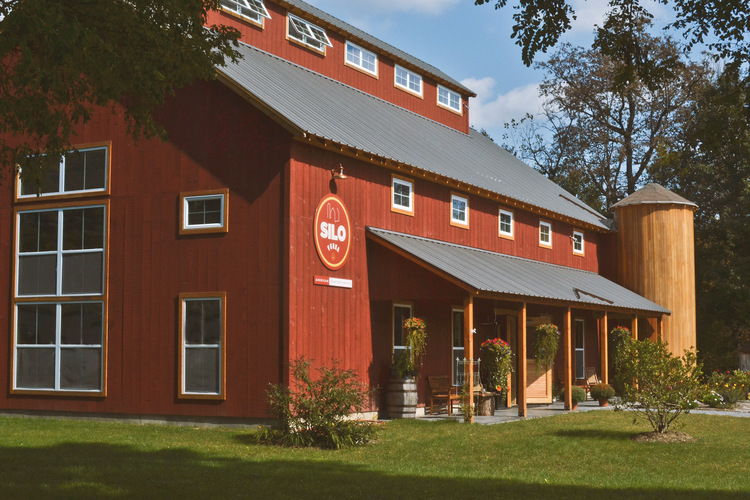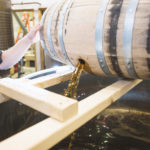Alumni Spotlight: Chris Maggiolo
Alcohol is an ancient food. It is a social lubricant. It is a component of ritual, of art, of dream-making. It is powerfully charged and, yet, so completely misunderstood in American culture.
 I moved from Virginia to Boston in September 2011 with these words in mind – words jotted down while taking notes during my freshman seminar in alcohol and culture. I was keen on studying the anthropology of alcohol and the Gastronomy program, I felt, was the perfect tool by which to do so. A few years honing my studies and then I’d apply to a PhD program. Well, the best laid plans…
I moved from Virginia to Boston in September 2011 with these words in mind – words jotted down while taking notes during my freshman seminar in alcohol and culture. I was keen on studying the anthropology of alcohol and the Gastronomy program, I felt, was the perfect tool by which to do so. A few years honing my studies and then I’d apply to a PhD program. Well, the best laid plans…
To say I concentrated in alcohol studies would be putting it lightly. It was everything I did. I worked full time managing the Modern Homebrew Emporium in Cambridge, leveraging contacts and a vast network of brewers to find interview participants and volunteer opportunities. I took a second job in the summer managing relationships between wholesalers and retailers. I conducted every project and wrote every paper (save for one, I think) on the subject of craft brewing and alcohol culture. And when I wasn’t working or hunkered down over a book for school, I volunteered with breweries and, later, distilleries. I believed in the holistic approach fostered by liberal arts studies, and I tried to engage the industry from all angles.
 Ultimately, it was the liberal arts approach that landed me my job at SILO Distillery. Craft producers need to be swiss army knives rather than specialists, and the Gastronomy program prepared me well for this. To a degree, I understood marketing and sales, production practices, legislature and regulations. In a pinch I can crunch financials. And if I didn’t know something, I had the tool set to figure it out. I never would have guessed that I would know as much about boiler systems as I do now, but last week I answered a call from an aspiring distiller with a background in chemical engineering and we had a half hour call about our boiler unit. The liberal arts approach is real, and it can be very valuable.
Ultimately, it was the liberal arts approach that landed me my job at SILO Distillery. Craft producers need to be swiss army knives rather than specialists, and the Gastronomy program prepared me well for this. To a degree, I understood marketing and sales, production practices, legislature and regulations. In a pinch I can crunch financials. And if I didn’t know something, I had the tool set to figure it out. I never would have guessed that I would know as much about boiler systems as I do now, but last week I answered a call from an aspiring distiller with a background in chemical engineering and we had a half hour call about our boiler unit. The liberal arts approach is real, and it can be very valuable.
But it can also be too vague, too broad. It’s important to have a goal in mind – something to anchor the Gastronomy net. Focus your intent, and the program will open amazing doors.
I frequently draw on my experiences with the Gastronomy program to fuel SILO’s growth. As a company we focus intently on local and regional agricultural systems. I’ve held meetings with groups of farmers in order to discuss potential crop growth for distilling purposes and to facilitate the collection of our spent grains. Having an understanding of their work and struggles goes a long way to securing these relationships. In conceiving of new products, I consider both modern trends and historic and cultural precedents. For example, amaro is really hot right now in trendy restaurants and cocktail circles. I’ve been working on a fun analog rooted in a mid 17th century cookery book. It’s been a blast and I think it’ll be quite successful.
Just as Gastronomy studies the art and science of food, distilling practices the art and science of spirits. In a craft that is as technical as it is creative, having a liberal arts background is a keystone of success. Sure, work can be stressful at times, but familiarity with the big picture brings everything back into perspective and keeps me energized and excited for what lies ahead.

